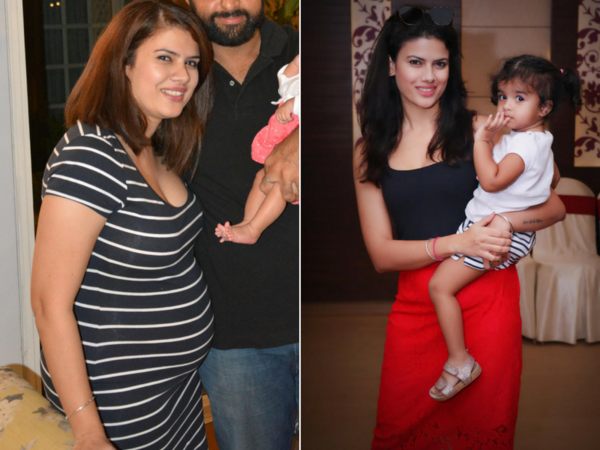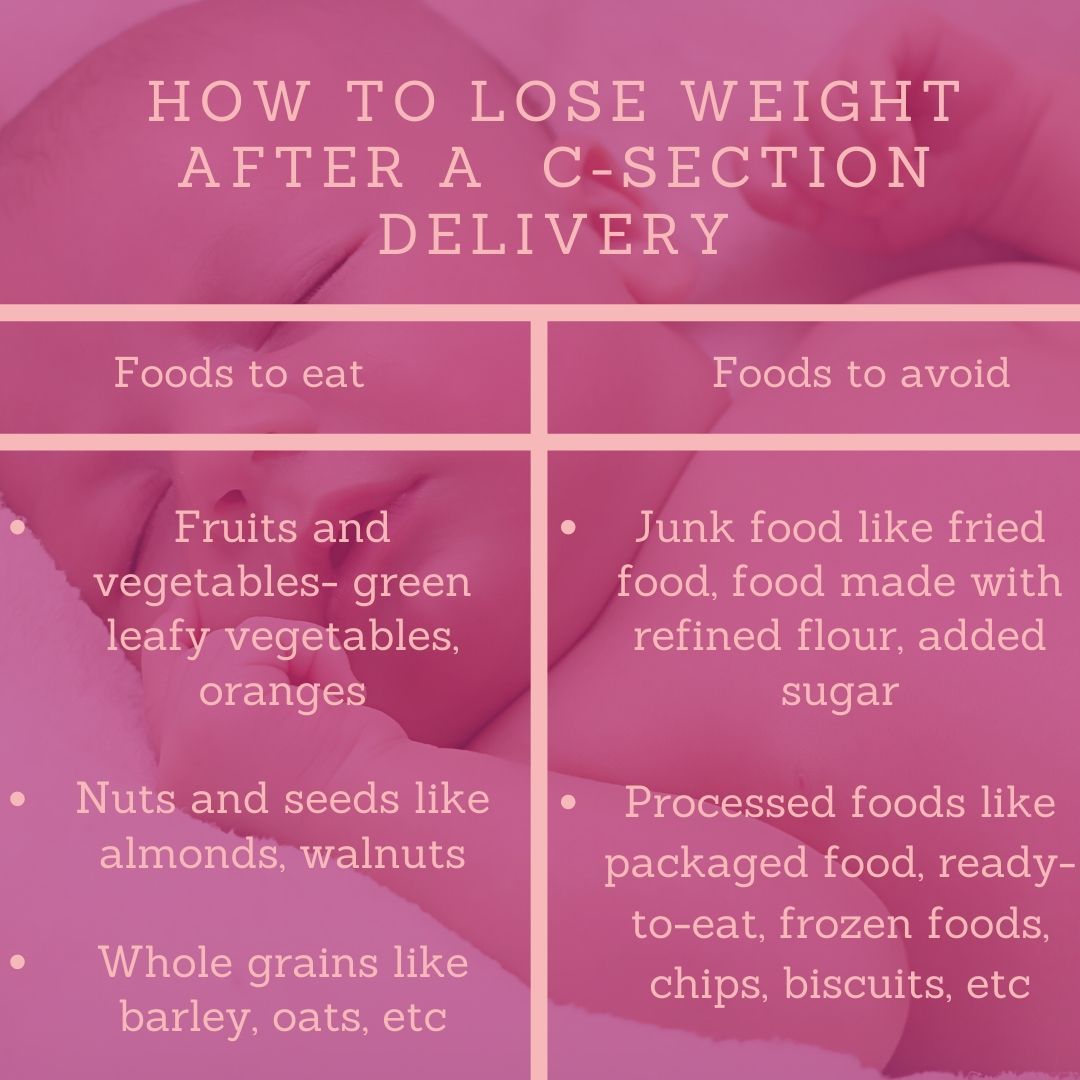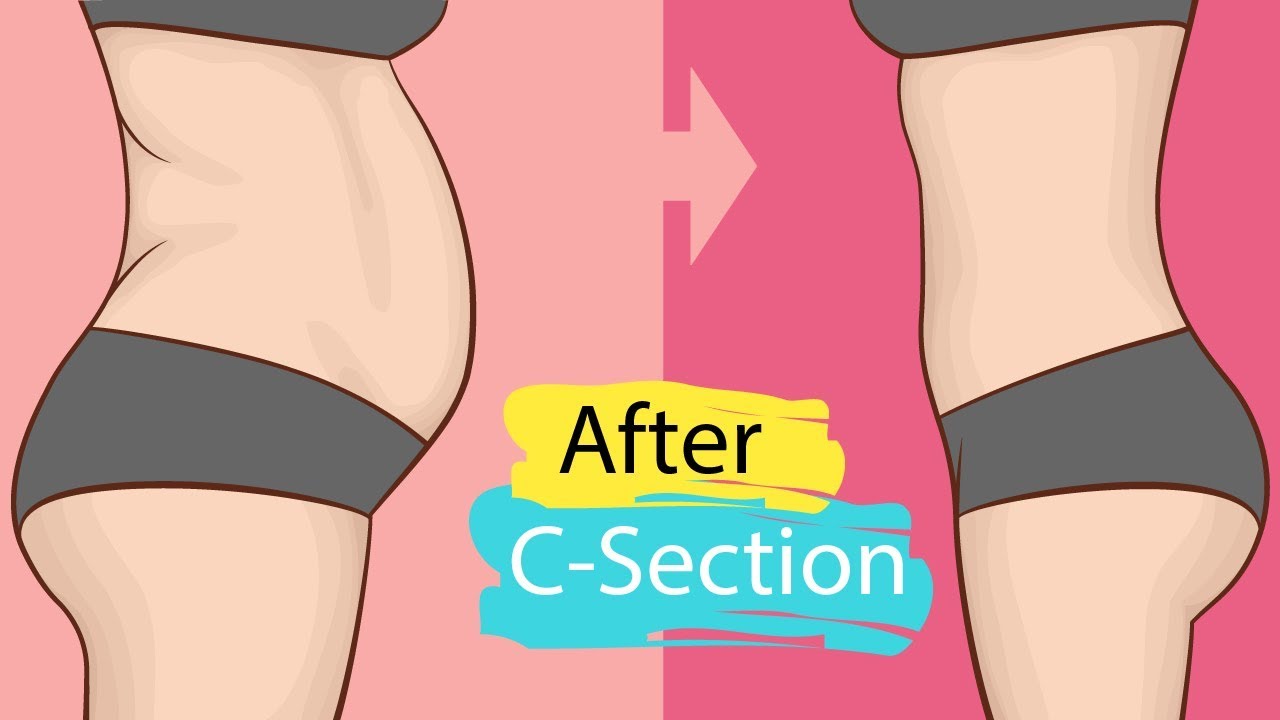So you’ve just had a C-section and you’re wondering if it’s possible to shed those post-pregnancy pounds? Well, good news – the answer is yes! While it may take a little time and effort, it is absolutely possible to lose weight after a C-section. In this article, we’ll explore some tips and strategies to help you on your weight loss journey, ensuring you feel confident and healthy after your incredible journey of bringing new life into the world.

Factors Affecting Weight Loss After C-Section
Physical Recovery from C-Section
After undergoing a C-section, your body needs time to heal and recover before you can begin focusing on weight loss. The incision site and surrounding muscles need time to heal, and pushing yourself too soon can lead to complications. It is essential to follow your healthcare provider’s guidelines and listen to your body’s cues.
Breastfeeding and Weight Loss
Breastfeeding can have a positive impact on weight loss after a C-section. Breastfeeding burns calories and can help you shed some of the extra weight gained during pregnancy. Additionally, breastfeeding releases hormones that promote uterine contractions and can aid in shrinking the uterus back to its pre-pregnancy size. However, it is important to note that every woman’s body is different, and not all women experience significant weight loss through breastfeeding alone.
Hormonal Changes and Weight Loss
It is crucial to understand that your body goes through significant hormonal changes after giving birth, including a decrease in estrogen levels. These hormonal fluctuations can affect your body’s metabolism, making weight loss more challenging. Be patient with your body as it adjusts to these changes, and focus on healthy lifestyle habits to support your weight loss journey.
Diet and Exercise
Diet and exercise play a vital role in weight loss after a C-section. However, it is essential to approach weight loss in a safe and sustainable manner. Extreme or restrictive diets can deprive your body of essential nutrients and hinder your recovery. Instead, focus on nourishing your body with a balanced, nutrient-dense diet and engaging in appropriate exercise routines.
When to Start Losing Weight After C-Section
Consulting with Your Healthcare Provider
Before embarking on any weight loss journey after a C-section, it is crucial to consult with your healthcare provider. They can assess your individual situation, considering factors such as your overall health, recovery progress, and any other potential complications. Your healthcare provider will provide personalized advice on when it is safe to start losing weight and what approach is best for you.
Waiting for the Right Time
While it is natural to want to start losing weight as soon as possible, it is important to wait for the right time. Your body needs time to heal properly, and pushing yourself too soon can lead to setbacks or complications. It is generally recommended to wait until your postpartum check-up, which usually occurs six to eight weeks after the C-section, before actively focusing on weight loss.
Managing Postpartum Pain
Managing postpartum pain is essential before starting any weight loss regimen after a C-section. If you are still experiencing significant pain or discomfort, it is important to address these issues with your healthcare provider before exercising or making drastic changes to your diet. By managing postpartum pain effectively, you will ensure a smoother weight loss journey.
Healthy Weight Loss Goals After C-Section
Setting Realistic Expectations
When setting weight loss goals after a C-section, it is crucial to be realistic and understanding of your body’s capabilities. Remember that your body has been through a significant event, and it may take time to get back to your pre-pregnancy weight. Set small, achievable goals that focus on overall health and well-being rather than solely on the number on the scale.
Gradual Weight Loss Approach
A gradual weight loss approach is ideal after a C-section. Rapid weight loss can put stress on your body and may not be sustainable in the long run. Aim for a gradual weight loss of 1-2 pounds per week, which is considered a healthy and realistic target. This approach allows your body to adjust and adapt to the changes gradually.
Tracking Progress
Tracking your progress can be an excellent motivational tool during your weight loss journey after a C-section. Keep a record of your weight, measurements, and any other indicators of progress that are important to you. This will help you stay accountable and provide a visual representation of your accomplishments, which can be incredibly motivating on your road to reaching your goals.
Dietary Recommendations for Weight Loss After C-Section
Eating a Balanced, Nutrient-Dense Diet
Focusing on a balanced, nutrient-dense diet is crucial for weight loss after a C-section. Include a variety of whole foods, such as fruits, vegetables, whole grains, lean proteins, and healthy fats. These foods provide essential nutrients, promote satiety, and support overall health and well-being.
Including Plenty of Fruits and Vegetables
Fruits and vegetables should be a cornerstone of your post-C-section weight loss diet. They are low in calories, high in fiber, and packed with essential vitamins and minerals. Incorporate a wide variety of colorful fruits and vegetables into your meals and snacks to boost nutrient intake and promote weight loss.
Choosing Healthy Sources of Protein and Fiber
Protein and fiber are two important nutrients for weight loss after a C-section. Protein helps build and repair tissues, promotes muscle growth, and increases feelings of fullness. Opt for lean sources of protein, such as chicken, fish, tofu, and legumes. Similarly, fiber aids in digestion, promotes satiety, and helps regulate blood sugar levels. Include plenty of fiber-rich foods like whole grains, beans, and lentils in your diet.
Limiting Processed Foods and Sugary Drinks
Processed foods and sugary drinks should be limited or avoided altogether when trying to lose weight after a C-section. These foods are often high in added sugars, unhealthy fats, and empty calories, which provide little to no nutritional value. Instead, opt for whole, unprocessed foods to fuel your body and support your weight loss efforts.
Drinking Plenty of Water
Staying hydrated is crucial for overall health and weight loss after a C-section. Drinking plenty of water can help curb hunger, support digestion, and promote optimal bodily functions. Aim to drink at least eight glasses of water per day, and increase your intake if you are breastfeeding or engaging in intense exercise.

Exercise Guidelines for Weight Loss After C-Section
Starting with Gentle Exercises
When incorporating exercise into your weight loss journey after a C-section, it is essential to start with gentle exercises. Begin with simple movements like walking or gentle stretching to allow your body to adjust and build strength gradually. As you feel more comfortable, you can gradually increase the intensity and duration of your workouts.
Engaging in Postpartum Specific Exercises
Postpartum-specific exercises can be extremely beneficial for weight loss and overall recovery after a C-section. These exercises focus on strengthening the core, pelvic floor, and other muscles that may have been weakened during pregnancy and childbirth. Consult with a qualified postpartum exercise specialist or physical therapist to learn specific exercises that are safe and effective for you.
Incorporating Cardiovascular Exercises
Cardiovascular exercises, such as jogging, swimming, or cycling, are excellent for burning calories and promoting weight loss after a C-section. Start with low-impact cardio exercises and gradually increase the intensity as your body becomes stronger and more comfortable. Aim for at least 150 minutes of moderate-intensity cardio each week, or as recommended by your healthcare provider.
Strengthening Core Muscles
Strengthening the core muscles is particularly important after a C-section. These muscles play a crucial role in supporting your abdomen and back, improving posture, and helping you regain overall strength. Start with gentle core exercises, like pelvic tilts and modified planks, and gradually progress to more challenging exercises as you feel ready.
Seeking Professional Guidance
If you are unsure about which exercises are safe and suitable for your post-C-section weight loss journey, consider seeking professional guidance. A certified personal trainer or postpartum exercise specialist can provide expert advice and create a customized exercise plan tailored to your specific needs and limitations.
Listening to Your Body
One of the most important aspects of exercise after a C-section is listening to your body. If you feel any pain or discomfort during a particular exercise, modify or stop it immediately. Every woman’s body is unique, and what works for others may not work for you. Pay attention to your body’s cues, and do not push yourself beyond your limits.
Emotional Well-being and Weight Loss After C-Section
Understanding Postpartum Emotions
Emotional well-being is a crucial aspect of successful weight loss after a C-section. Understand that the postpartum period can be challenging, and a range of emotions is normal. Hormonal changes, lack of sleep, and adjusting to your new role as a mother can all contribute to feelings of stress, anxiety, and sadness. Acknowledge and validate your emotions, and seek support when needed.
Seeking Support from Loved Ones
It is essential to lean on your loved ones for support during your post-C-section weight loss journey. Reach out to your partner, family members, or friends and let them know how they can support you. Whether it’s helping with childcare, cooking healthy meals, or providing a listening ear, having a strong support system can make a significant difference in your emotional well-being and weight loss success.
Consideration of Professional Help
If you find that your emotions are persistently overwhelming or affecting your daily life, consider seeking professional help. A therapist or counselor can provide you with the tools and support needed to navigate the emotional challenges that may arise during and after weight loss following a C-section. Remember, asking for help is a sign of strength, and you deserve the support necessary to thrive.
Self-care and Stress Management
Prioritizing self-care and stress management is essential for both your emotional well-being and weight loss after a C-section. Take time for yourself each day to engage in activities that bring you joy and help you relax. This could include taking a bath, reading a book, practicing yoga, or simply going for a walk. Find healthy ways to manage stress, such as deep breathing, meditation, or journaling, to support your overall well-being.

Avoiding Crash Diets and Extreme Measures
Risks of Crash Diets and Quick Fixes
Crash diets and quick fixes may promise rapid weight loss, but they often come with risks and negative consequences, especially after a C-section. These extreme measures can deprive your body of essential nutrients needed for healing and recovery. They can also disrupt your metabolism and lead to an unhealthy cycle of weight gain and loss. It is best to focus on sustainable lifestyle changes rather than relying on quick fixes.
Focus on Sustainable Lifestyle Changes
Instead of resorting to crash diets, focus on sustainable lifestyle changes for long-term success in weight loss after a C-section. Slow and steady wins the race, and adopting healthy habits that you can maintain is key. Make gradual changes to your diet and exercise routine that you can sustain for the long term. This approach not only supports your overall health but also promotes a healthy relationship with food and your body.
Importance of Nourishing Your Body
After a C-section, it is vital to prioritize nourishing your body with wholesome foods that support healing and promote weight loss. Crash diets and extreme measures can deprive your body of the necessary nutrients it needs to recover and function optimally. Instead, focus on eating a variety of nutrient-dense foods that provide the energy and nourishment your body needs to thrive.
Additional Tips for Post-C-Section Weight Loss
Getting Sufficient Sleep
Getting sufficient sleep is essential for weight loss and overall well-being after a C-section. Lack of sleep can disrupt hormonal balance and increase cravings for unhealthy foods. Prioritize sleep by creating a calming bedtime routine, avoiding stimulating activities before bed, and establishing a consistent sleep schedule. If possible, enlist the help of your partner or loved ones to share nighttime responsibilities, allowing you to get the rest you need.
Staying Active throughout the Day
In addition to dedicated exercise sessions, staying active throughout the day can aid in weight loss after a C-section. Simple activities like taking the stairs instead of the elevator, pacing while on a phone call, or incorporating short walks into your daily routine can contribute to increased physical activity. Aim for at least 10,000 steps per day to support weight loss and overall health.
Taking Care of Your Mental Health
Taking care of your mental health is paramount when embarking on a weight loss journey after a C-section. Prioritize activities that bring you joy, incorporate relaxation techniques into your daily routine, and seek out support when needed. Remember that your mental well-being is just as important as your physical health.
Body-Positive Mindset
Lastly, cultivating a body-positive mindset is crucial for a healthy weight loss journey after a C-section. Your body has undergone incredible changes to bring a new life into the world, and it deserves love, respect, and acceptance. Embrace your body at every stage of your weight loss journey, focusing on overall health and well-being rather than solely on achieving a certain physique. Celebrate your accomplishments, no matter how small, and remember that true beauty comes from within.

Potential Challenges and Solutions in Weight Loss After C-Section
Balancing Childcare and Time for Self-care
One of the challenges many new mothers face in weight loss after a C-section is balancing childcare responsibilities with time for self-care. It can be challenging to find dedicated time for exercise or meal planning when caring for a newborn. Consider enlisting the help of your partner, family members, or friends to share childcare duties, allowing you to prioritize self-care and weight loss efforts.
Lack of Motivation or Fatigue
Lack of motivation or fatigue can be common obstacles when trying to lose weight after a C-section. The demands of caring for a newborn, combined with the physical recovery process, can leave you feeling tired and unmotivated. Start small and focus on incorporating small bursts of activity into your day. Celebrate the small victories and remind yourself of the positive impact your efforts will have on your overall well-being.
Addressing Obstacles as They Arise
Obstacles are likely to arise during your weight loss journey after a C-section, but it’s important not to let them derail your progress. Instead of viewing obstacles as setbacks, see them as opportunities for growth and learning. Address the obstacles as they arise, problem-solve, and come up with alternative strategies to keep moving forward. Remember that your journey is unique, and it’s okay to adapt and adjust along the way.
Celebrating Milestones in Post-C-Section Weight Loss
Recognizing Progress and Achievements
Throughout your post-C-section weight loss journey, it is important to recognize and celebrate your progress and achievements, no matter how small they may seem. Give yourself credit for the effort you are putting in, and acknowledge the positive changes you are making in your life. By recognizing your milestones, you can stay motivated and gain confidence in your ability to reach your ultimate goals.
Rewarding Yourself Positively
As you reach milestones and achieve your weight loss goals, it is essential to reward yourself positively. Treat yourself to something that promotes your overall well-being and supports your weight loss journey, such as a new workout outfit, a massage, or a day out with friends. By rewarding yourself in positive ways, you reinforce healthy behaviors and create a positive association with your weight loss efforts.




